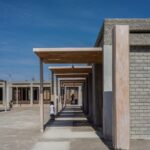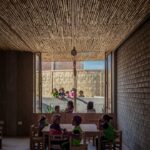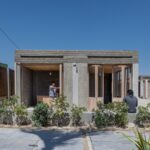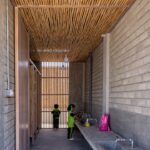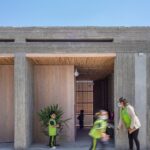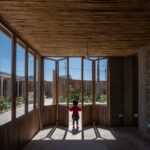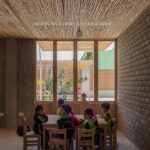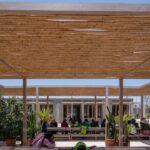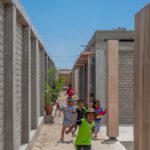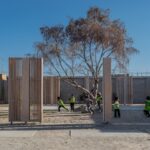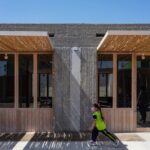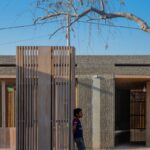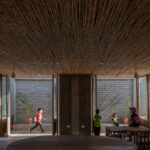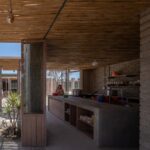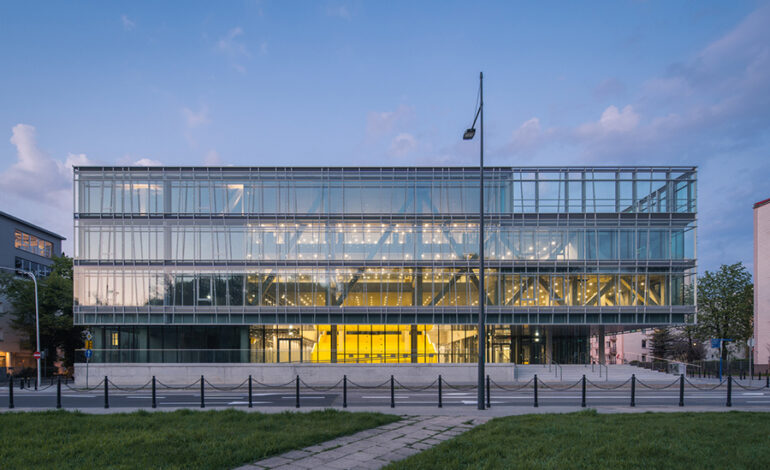Empowering Education in Villacuri Revitalizing the Community
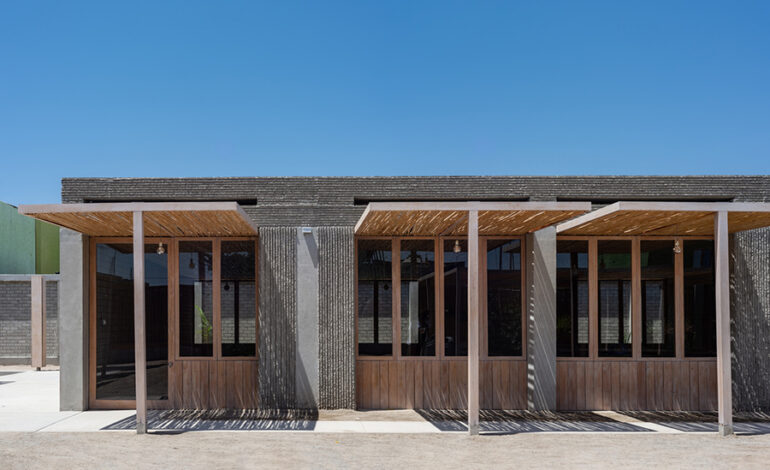
Introduction
The Elementary School in Santa Cruz de Villacuri Community, designed by Betsaida Curto Reyes and Atelier Ander Bados, represents a beacon of hope and progress in an underserved area. Situated in the Peruvian desert, Villacuri faces challenges of infrastructure, education, and urban planning.
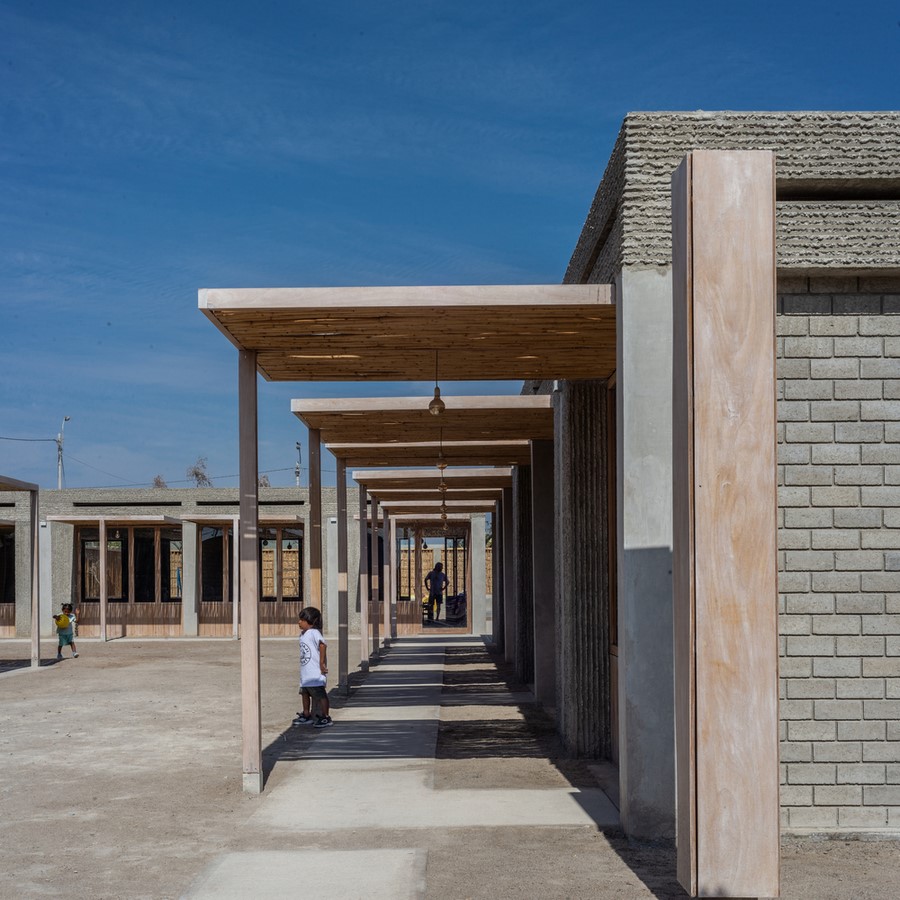
Challenges of Villacuri
Villacuri emerged as an informal settlement over 25 years ago, predominantly inhabited by immigrants from rural areas. Lacking proper urban planning, the community struggles with inadequate infrastructure and limited government attention. The initial school, damaged in the 2007 earthquake, remained unreconstructed for years, compromising the education of over 300 students.
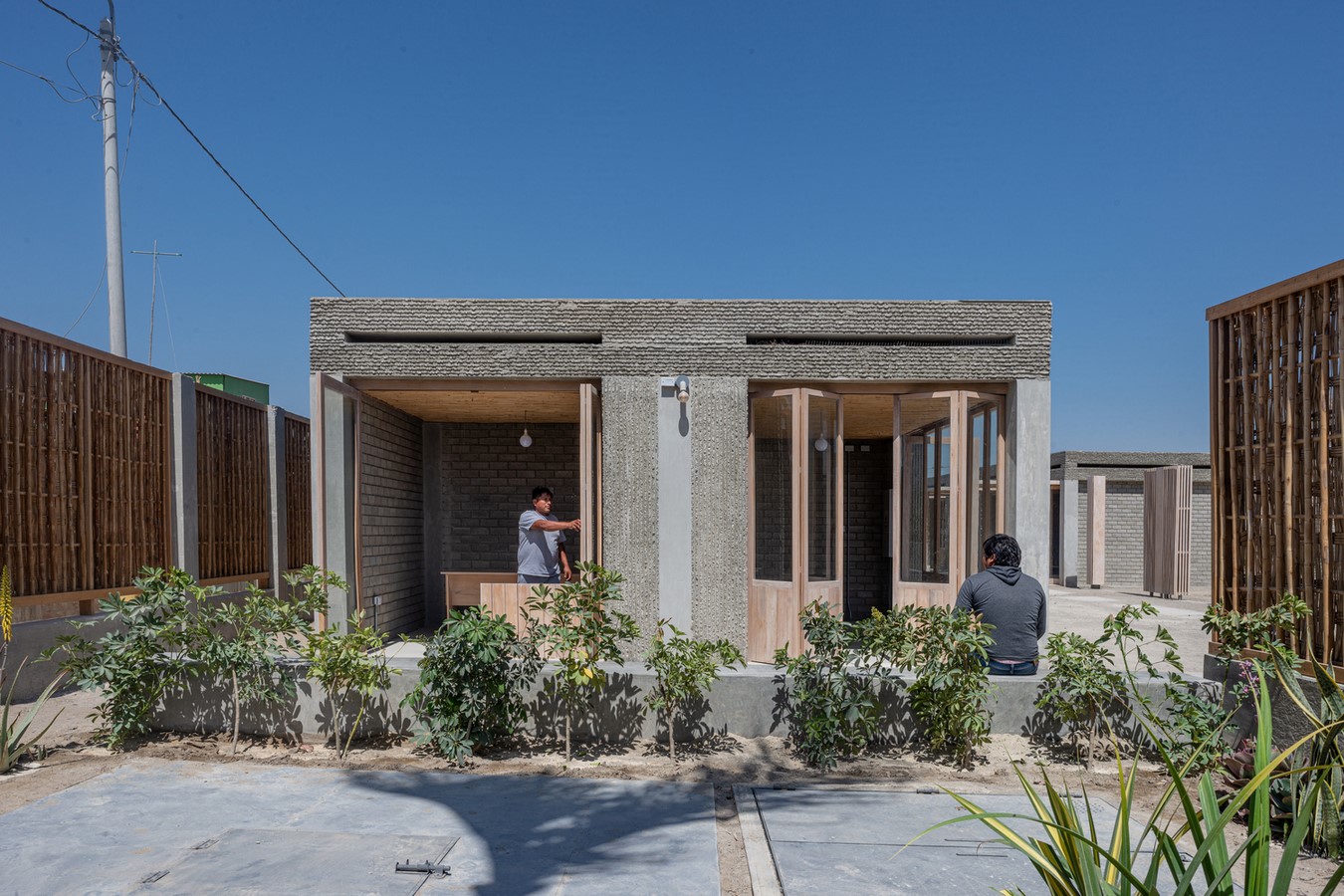
Revitalization Efforts
In 2019, the NGO All Hands and Hearts took the initiative to rebuild the school, recognizing the urgent need for educational infrastructure. The project aimed to address the diverse cultural identities within Villacuri while incorporating sustainable design principles and local construction techniques.
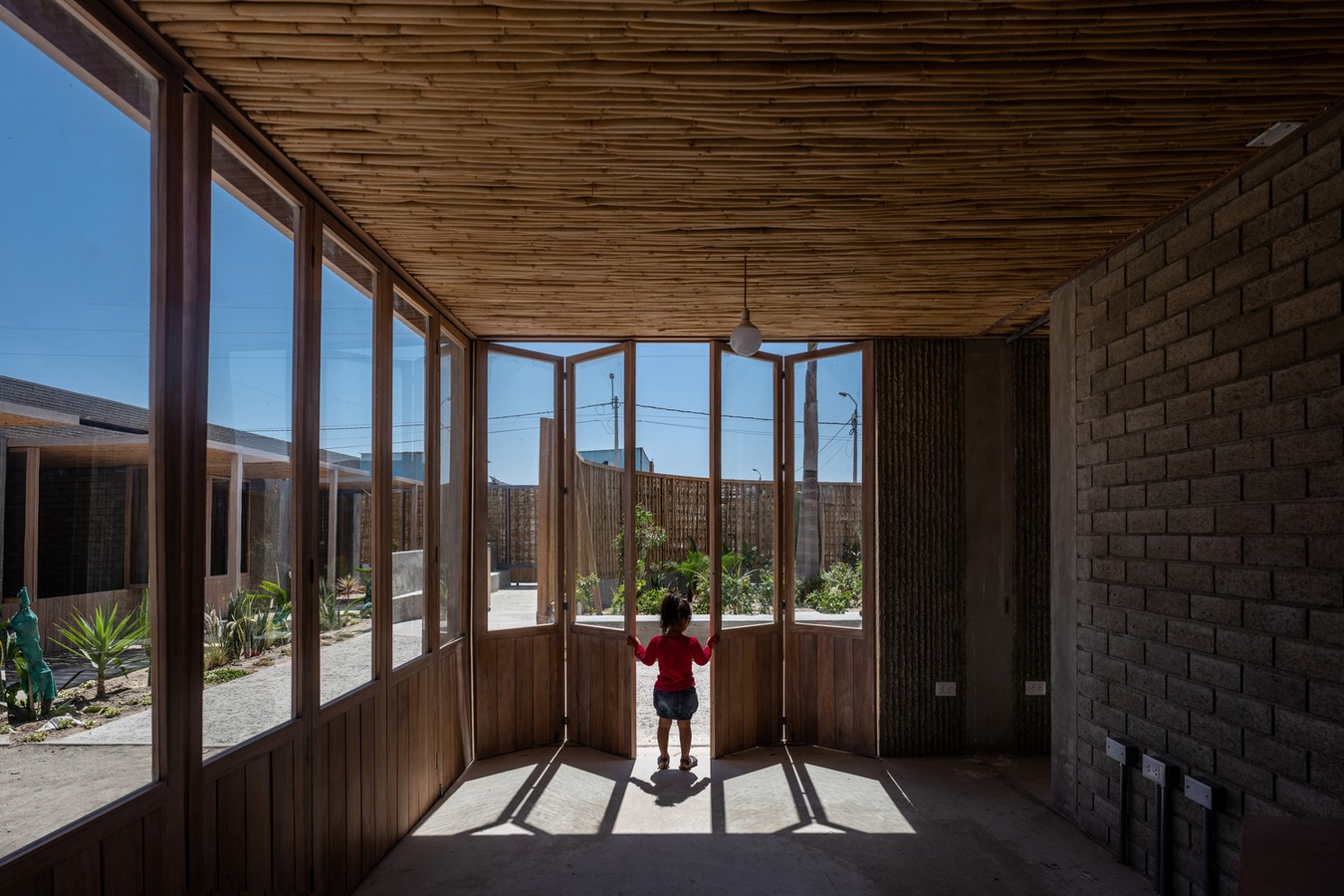
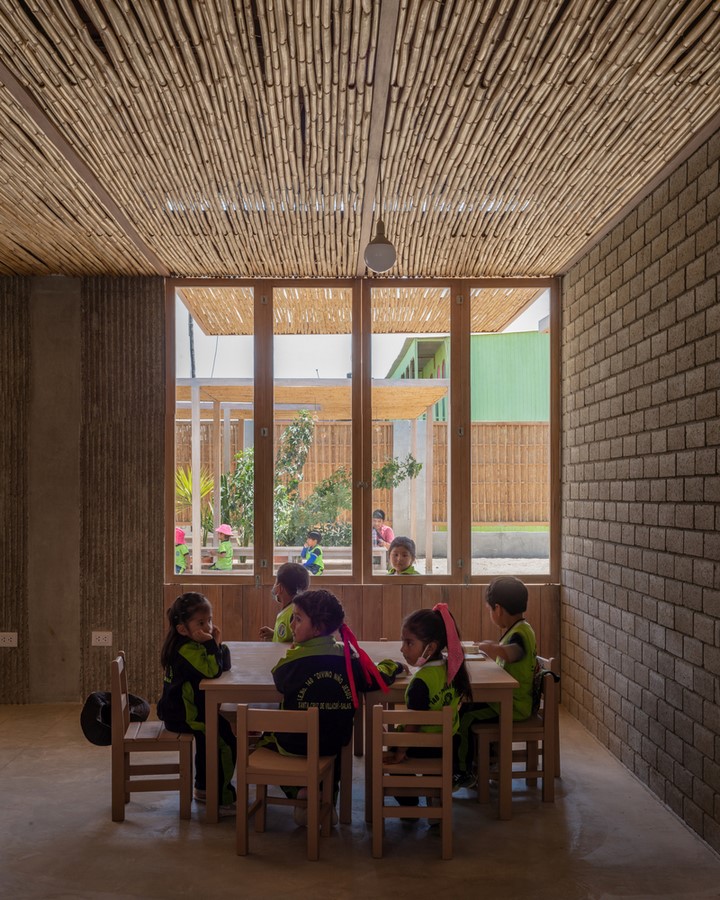
Community-Centric Design
The project embraces the community’s identity and environment, utilizing materials like exposed brick, concrete, mat, and wood in their natural state. This approach not only reflects the local construction methods but also fosters a sense of ownership and pride among residents.
Innovative Solutions
To combat the desert heat, the design incorporates traditional Ica roofs with ventilated air chambers, providing natural cooling. Local materials such as wild cane and mat are utilized for closure, shading, and compartmentalization, enhancing the school’s integration with its surroundings.
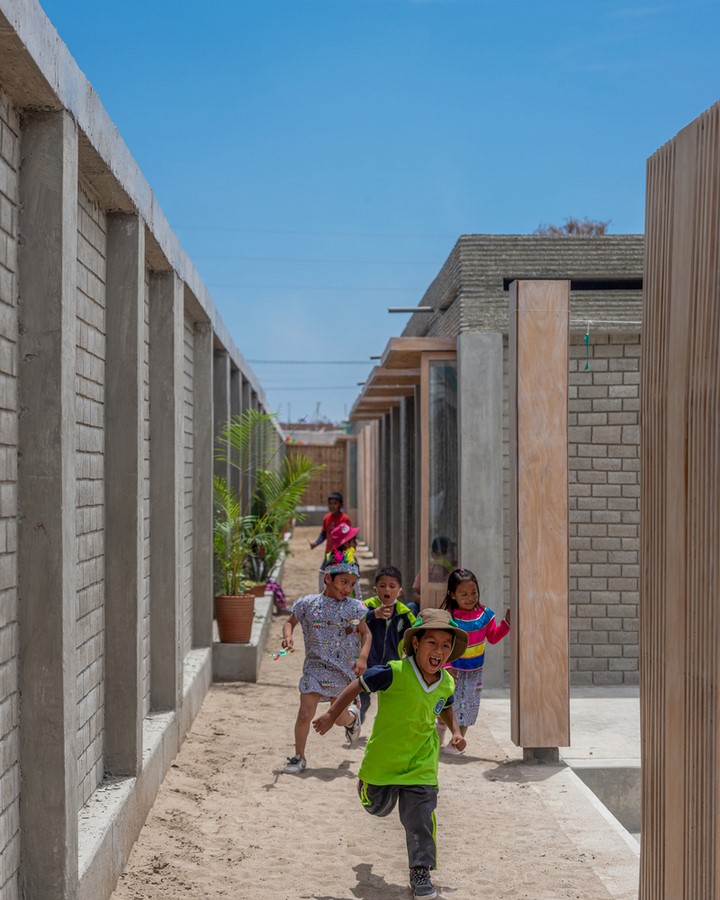
Spatial Organization
The school’s layout features a grid of proportional spaces, balancing solids and voids to create dynamic learning environments. Classrooms and service buildings are complemented by open areas marked by shadows, benches, and olive trees, fostering collaborative and outdoor learning experiences.
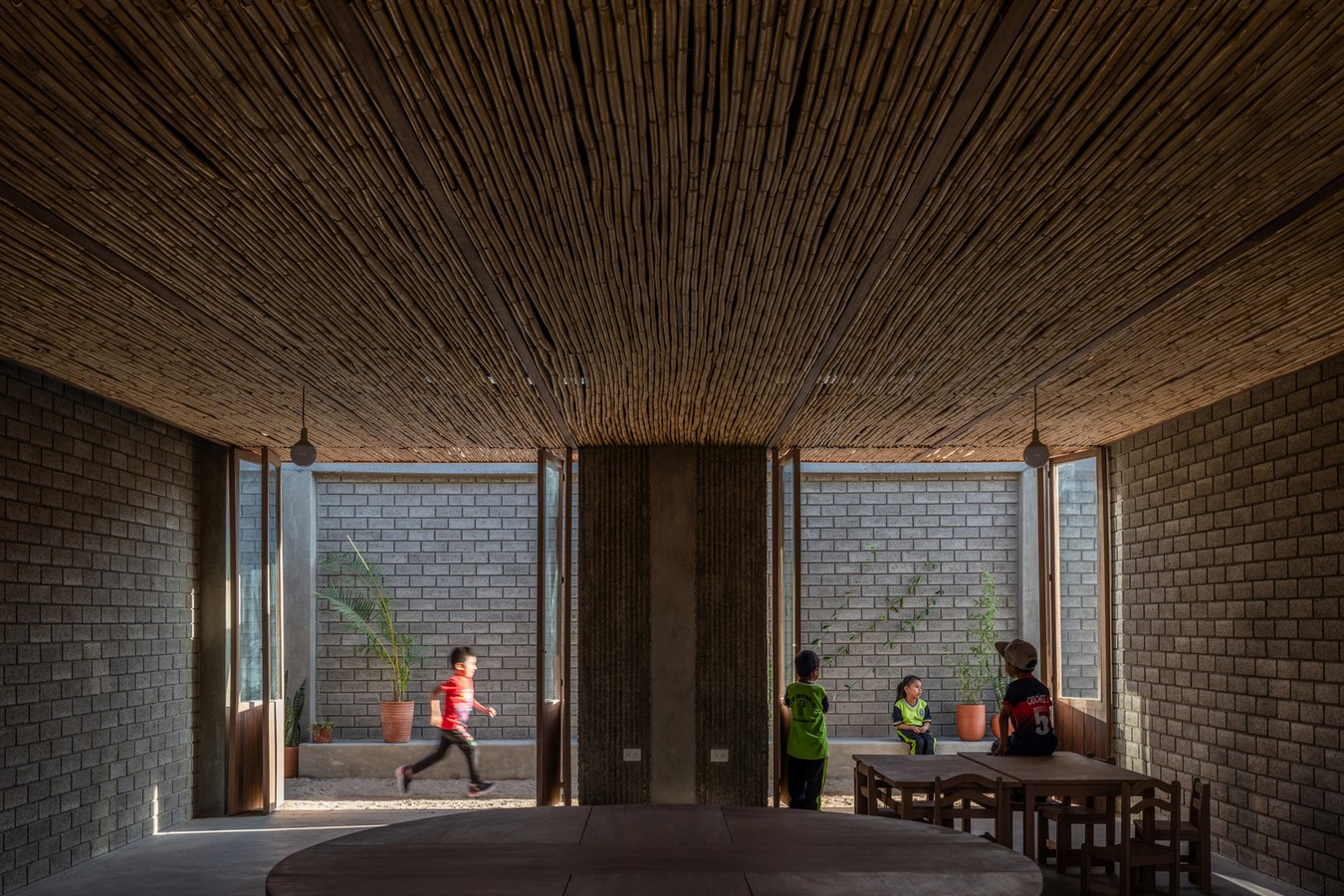
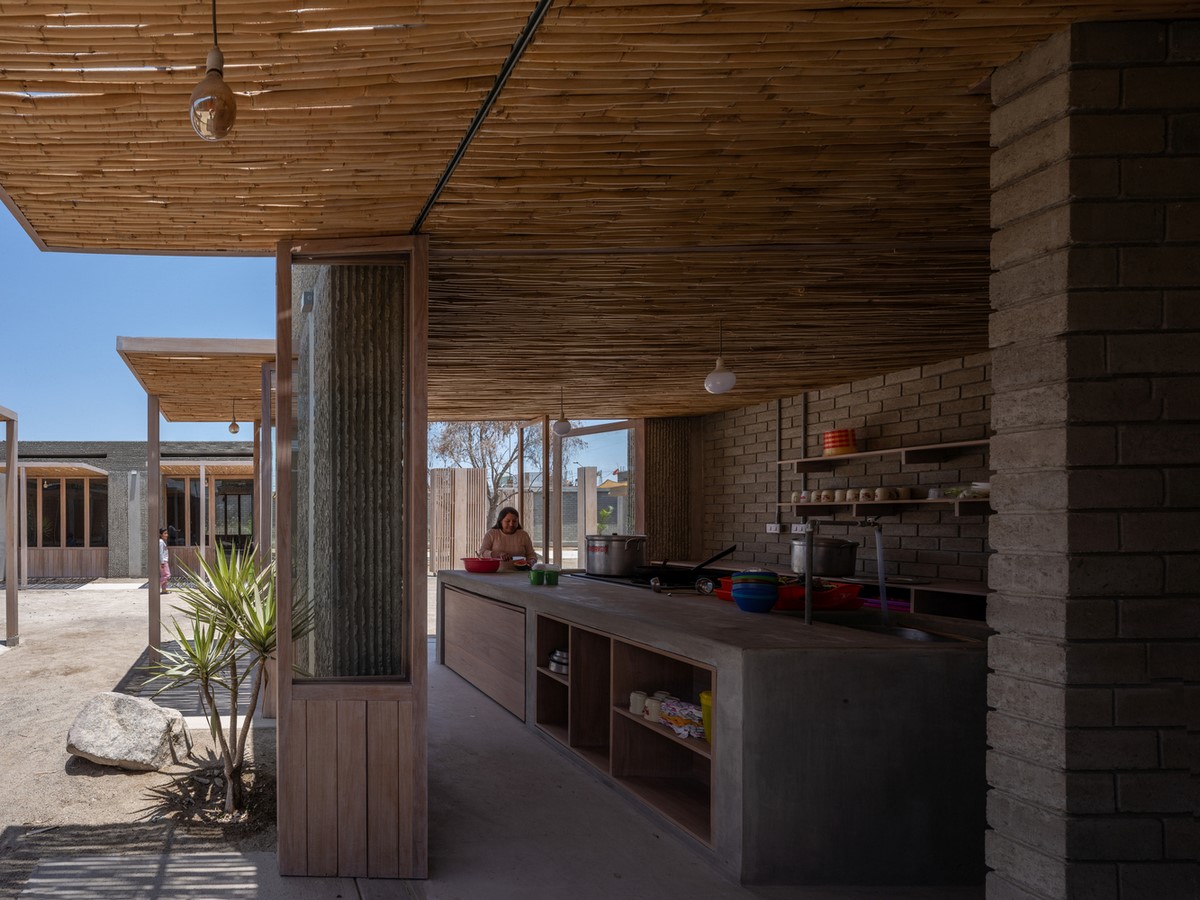
Conclusion
The Elementary School in Santa Cruz de Villacuri Community stands as a testament to the power of community-driven initiatives and sustainable design. By addressing educational needs while respecting local culture and environment, the project not only provides a physical space for learning but also contributes to the social and economic development of Villacuri.



